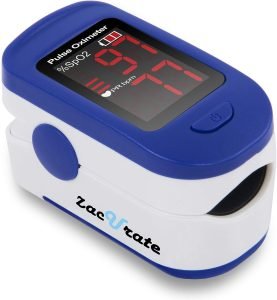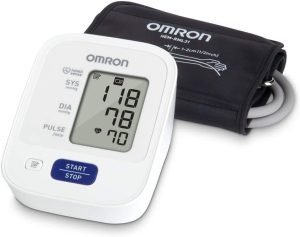What Is The Best Supplement To Lower Blood Pressure?
If you’re on a quest to find the holy grail of supplements to help lower your blood pressure, you’re not alone. With an overwhelming array of options out there, it can be a daunting task to navigate through the maze of choices. But fear not, because in this article, we will reveal the top contenders for the title of the best supplement to lower blood pressure. So sit back, relax, and get ready to discover the key to a healthier blood pressure reading.
1. Introduction to Blood Pressure
What is blood pressure?
Blood pressure refers to the force exerted by the blood against the walls of the arteries as it flows through the circulatory system. It is measured through two values – systolic pressure (the top number) and diastolic pressure (the bottom number) – and is often expressed as systolic over diastolic (e.g., 120/80 mmHg). Blood pressure readings are important in assessing the overall health and functioning of the cardiovascular system.
What are the risks of high blood pressure?
High blood pressure, also known as hypertension, can have serious implications for your health. When left uncontrolled, it can lead to various health problems such as heart disease, stroke, kidney disease, and even vision loss. It puts extra strain on the heart and blood vessels, making them work harder and increasing the risk of damage over time.
Why is it important to lower blood pressure?
Lowering blood pressure is crucial because it helps reduce the strain on the heart and blood vessels, thus lowering the risk of cardiovascular diseases. By keeping blood pressure within a healthy range, you support optimal functioning of the cardiovascular system and decrease the likelihood of developing serious complications.
What role do supplements play in blood pressure management?
Supplements can play a supportive role in blood pressure management. While it is important to note that lifestyle changes and prescribed medications are the primary approaches to controlling blood pressure, certain supplements have gained attention for their potential benefits. These supplements, when used in conjunction with a healthy lifestyle, may help further support cardiovascular health and help maintain blood pressure within an ideal range.
2. Understanding Hypertension
Defining hypertension
Hypertension is a medical condition characterized by abnormally high blood pressure levels. It is typically diagnosed when multiple blood pressure readings consistently show a systolic pressure of 130 mmHg or higher, or a diastolic pressure of 80 mmHg or higher. Hypertension can be classified into two categories – primary (essential) hypertension, which lacks a specific underlying cause, and secondary hypertension, which is caused by an underlying medical condition.
Causes and risk factors of hypertension
The exact causes of primary hypertension remain largely unknown, but several risk factors have been identified. These include a family history of hypertension, age, race (African-Americans have a higher risk), obesity, sedentary lifestyle, poor diet (high in sodium and low in potassium), excessive alcohol consumption, tobacco use, chronic stress, and underlying medical conditions like diabetes and kidney disease.
Complications associated with hypertension
If left uncontrolled, hypertension can have severe consequences. It significantly increases the risk of developing heart disease, heart attacks, strokes, kidney disease, and vision problems. Hypertension damages the arteries, making them less elastic and prone to the development of atherosclerosis (buildup of fatty plaques). It also puts strain on the heart, leading to thickening and weakening of heart muscles over time.
Treatment options for hypertension
Treatment for hypertension typically involves a combination of lifestyle modifications and, in some cases, prescribed medications. The primary focus is on adopting a healthy lifestyle, which includes dietary changes, regular exercise, weight management, stress reduction, and limiting alcohol intake. In cases where lifestyle changes alone are not sufficient, doctors may prescribe medications such as diuretics, beta-blockers, ACE inhibitors, ARBs, or calcium channel blockers to help lower blood pressure.
3. Role of Lifestyle Changes
Dietary modifications
Making dietary modifications is a crucial aspect of managing blood pressure. Opt for a balanced diet that includes plenty of fruits, vegetables, whole grains, lean proteins, and low-fat dairy products. Aim to reduce sodium intake by limiting processed and packaged foods, opting for fresh ingredients, and seasoning meals with herbs and spices instead of salt. Additionally, a diet rich in potassium, magnesium, and calcium can be beneficial for blood pressure management.
Exercise and physical activity
Regular physical activity is essential in maintaining healthy blood pressure levels. Engage in aerobic exercises such as walking, jogging, swimming, or cycling for at least 150 minutes per week. This helps strengthen the heart and cardiovascular system, improving their efficiency and reducing blood pressure. Strength training exercises, focusing on major muscle groups, can also be beneficial.
Weight management
Maintaining a healthy weight can have a significant impact on blood pressure management. Losing excess weight, especially around the waistline, helps reduce strain on the heart and blood vessels. Adopting a well-balanced diet, portion control, regular exercise, and managing calorie intake are key factors in achieving and maintaining a healthy weight.
Stress reduction techniques
Chronic stress can contribute to elevated blood pressure levels. Finding effective stress reduction techniques, such as practicing mindfulness, deep breathing exercises, yoga, meditation, or engaging in hobbies, can help manage stress and promote relaxation. Experimenting with different techniques and finding what works best for you is important in maintaining overall emotional well-being and blood pressure control.

4. Popular Supplements for Lowering Blood Pressure
Fish oil or Omega-3 fatty acids
Fish oil, rich in omega-3 fatty acids, has been studied for its potential blood pressure-lowering effects. Omega-3s are known for their anti-inflammatory properties and their ability to improve blood vessel function. Several studies have suggested that regular consumption of fish oil supplements, usually containing EPA (eicosapentaenoic acid) and DHA (docosahexaenoic acid), may modestly reduce blood pressure levels. However, further research is needed to determine optimal dosage and duration of use.
Garlic extract
Garlic has been used for centuries for its potential health benefits, including its effect on blood pressure. Garlic extract or supplements are believed to promote blood vessel relaxation and inhibit the formation of blood clots. Some studies have found that garlic supplementation may help lower blood pressure, particularly in individuals with hypertension. However, the exact mechanisms and ideal dosage require further investigation.
Hawthorn
Hawthorn, derived from the hawthorn plant, has been used traditionally to support cardiovascular health. It is believed to have vasodilatory effects, improving blood flow and potentially reducing blood pressure. While some studies show promising results regarding hawthorn’s ability to lower blood pressure, more research is necessary to establish its effectiveness and recommended dosage.
Coenzyme Q10
Coenzyme Q10 (CoQ10) is a natural substance found in every cell of the body and plays a vital role in energy production. Some studies suggest that CoQ10 supplementation may help lower blood pressure levels, especially in individuals with mild to moderate hypertension. CoQ10 is believed to enhance the production of nitric oxide, a compound that promotes blood vessel relaxation. However, further research is needed to determine optimal dosage and long-term effects.
Magnesium
Magnesium is an essential mineral involved in numerous bodily functions, including blood pressure regulation. Some evidence suggests that magnesium supplementation may have a modest blood pressure-lowering effect, particularly in individuals with magnesium deficiency. Magnesium supplements are available in various forms, but it is important to consult a healthcare professional to determine the appropriate dosage and assess any potential interactions with medications.
Potassium
Potassium is an electrolyte that plays a vital role in maintaining normal blood pressure levels. Adequate potassium intake through diet or supplementation has been associated with lower blood pressure. Fruits and vegetables, particularly bananas, oranges, spinach, and sweet potatoes, are good dietary sources of potassium. However, it is important to consult a healthcare professional before considering potassium supplements, especially for individuals with kidney disorders or taking certain medications.
Calcium
Calcium is well-known for its importance in bone health, but it also plays a role in blood pressure regulation. Some studies suggest that calcium supplementation may help lower blood pressure in individuals with hypertension. However, the optimal dosage and long-term effects of calcium supplementation on blood pressure require further investigation. It is essential to ensure adequate dietary calcium intake through sources like low-fat dairy products, leafy greens, and fortified foods, and to consult a healthcare professional before considering calcium supplements.
Vitamin D
Vitamin D, known as the “sunshine vitamin,” is crucial for overall health, including cardiovascular health. Low levels of vitamin D have been associated with an increased risk of hypertension. While research on the direct impact of vitamin D supplementation on blood pressure is ongoing, ensuring adequate vitamin D levels through sunlight exposure and/or dietary sources like fatty fish, egg yolks, and fortified foods can be beneficial for maintaining overall health.
5. Scientific Evidence and Effectiveness
Studies supporting the use of supplements for blood pressure
Several studies have investigated the potential benefits of supplements in blood pressure management. While some supplements, such as fish oil and garlic extract, have shown promising results in reducing blood pressure, it is important to recognize that the evidence is often limited and sometimes conflicting. Many of these studies involve small sample sizes or have methodological limitations. Therefore, more high-quality research is needed to establish the effectiveness of supplements in blood pressure management.
Dosage and recommended intake
Determining the appropriate dosage and recommended intake of supplements can be challenging, as it varies depending on the supplement and individual needs. It is important to follow the dosage instructions provided by the manufacturer or consult a healthcare professional to ensure safe and effective use. Healthcare professionals can consider factors such as age, gender, overall health, and potential interactions with other medications before recommending a specific dosage.
Possible side effects and interactions
While supplements are generally considered safe when used appropriately, they can still pose side effects and interact with certain medications. For example, fish oil supplements may cause digestive issues, while excessive garlic intake can increase the risk of bleeding in individuals taking blood-thinning medications. Additionally, certain supplements may interact with anticoagulants, antiplatelet drugs, or other medications. It is essential to discuss the use of supplements with a healthcare professional to minimize potential risks and ensure safe usage.
6. Consultation with Healthcare Professionals
Importance of medical advice
When considering supplements for blood pressure management, it is crucial to seek medical advice. Healthcare professionals, such as doctors or pharmacists, can provide valuable guidance based on an individual’s specific health conditions, medications, and overall health requirements. They can assess potential risks, recommend appropriate supplements, and monitor their effects in conjunction with prescribed medications or lifestyle modifications.
Discussing supplements with doctors or pharmacists
When consulting healthcare professionals, it is important to discuss any supplements you are considering taking. They can help evaluate the safety, effectiveness, and potential interactions of supplements with medications or existing health conditions. Open communication ensures that the healthcare professional has a complete understanding of your health profile and can provide informed recommendations tailored to your individual needs.
Understanding personal health requirements
Individuals have unique health requirements, and what works for one person may not work for another. Factors such as age, gender, overall health, and concurrent medications can influence the choice and effectiveness of supplements in blood pressure management. By understanding and acknowledging personal health requirements, individuals can make informed decisions and embrace a more personalized approach to blood pressure management.
7. Best Practices for Choosing and Using Supplements
Quality and safety considerations
When choosing supplements, it is crucial to prioritize quality and safety. Look for reputable brands and manufacturers that adhere to strict quality control standards to ensure their products are free from contaminants and accurately labeled. Additionally, consider supplements that have been independently tested and certified by third-party organizations, as this provides an extra layer of assurance regarding their safety and quality.
Looking for certification and third-party testing
Supplements that undergo third-party testing and hold certifications can offer greater confidence in their quality and legitimacy. Look for certifications from reputable organizations such as NSF International, United States Pharmacopeia (USP), or ConsumerLab.com. These certifications indicate that the product has met specific quality standards, including testing for purity, accuracy of ingredients, and absence of contaminants.
Reading product labels and ingredients
Carefully reading product labels and ingredient lists is essential when choosing supplements. Look for clear and transparent labeling, including information on active ingredients, recommended dosage, and potential allergens. Understanding the ingredients helps individuals make informed decisions and identify any potential allergens or substances they may be sensitive to.
Potential drug interactions
Some supplements can interact with prescription medications, over-the-counter drugs, or other supplements. It is crucial to be aware of potential drug interactions and discuss them with a healthcare professional. They can evaluate the compatibility of supplements with existing medications and advise on timing, dosage adjustments, or alternative options to minimize the risk of adverse effects.

8. Lifestyle Factors to Complement Supplement Usage
Adopting a balanced diet
Supplements should not be considered as standalone solutions but rather as complementary tools in blood pressure management. Adopting a balanced diet rich in fruits, vegetables, whole grains, lean proteins, and low-fat dairy products is essential for overall health and effective blood pressure management. A healthy diet provides essential nutrients that support the cardiovascular system, and it can help reduce the need for excessive reliance on supplements.
Regular exercise routine
Physical activity and exercise are vital for maintaining optimal cardiovascular health. Regular exercise helps strengthen the heart, improve blood flow, and lower blood pressure. Combining regular exercise with supplements can have an additive effect in blood pressure management. Aim for at least 150 minutes of moderate-intensity aerobic exercise or 75 minutes of vigorous-intensity exercise per week, along with strength training exercises.
Reducing salt intake
Excessive sodium intake can contribute to high blood pressure. Limiting salt intake by avoiding processed and packaged foods, reducing the use of table salt, and seasoning meals with herbs and spices instead can help lower blood pressure. By reducing sodium intake, individuals can complement the effects of supplements and lifestyle changes in achieving target blood pressure goals.
Limiting alcohol consumption
Excessive alcohol consumption can raise blood pressure and significantly contribute to hypertension. To maintain optimal blood pressure levels, it is recommended to limit alcohol consumption. The American Heart Association suggests moderate alcohol consumption, which equates to up to one drink per day for women and up to two drinks per day for men.
Managing stress levels
Chronic stress can have negative effects on blood pressure levels. Finding effective stress management techniques, such as practicing mindfulness, engaging in regular exercise, pursuing hobbies, or seeking professional help, can help individuals manage stress and significantly impact blood pressure control. By incorporating stress reduction techniques into daily routines, individuals can enhance the effectiveness of supplements and other lifestyle changes in blood pressure management.
9. Monitoring Blood Pressure
Regular blood pressure checks
Regular monitoring of blood pressure is essential in managing hypertension. Have your blood pressure checked regularly to track changes and ensure that it remains within a healthy range. Blood pressure readings should be taken under standardized conditions, such as sitting quietly for a few minutes and using a properly calibrated blood pressure cuff. Sharing these readings with a healthcare professional can help them better assess the efficacy of supplements and other interventions.
Home monitoring devices
Home blood pressure monitors allow individuals to track their blood pressure in the comfort of their own homes. These devices can be beneficial for monitoring trends and determining the effectiveness of supplements and lifestyle changes over time. However, it is important to choose a high-quality and reliable device, follow the instructions carefully, and consult a healthcare professional if readings consistently remain above or below the target range.
Tracking progress and improvements
Keeping a record of blood pressure readings, lifestyle modifications, and supplement usage can help individuals track their progress and identify any positive changes or potential areas for improvement. This information can be shared with healthcare professionals during consultations, allowing for more accurate assessments and personalized adjustments in treatment plans.
10. Conclusion
In conclusion, blood pressure management is crucial for maintaining cardiovascular health and reducing the risk of complications. While supplements can play a supportive role in blood pressure control, they should never replace prescribed medications or essential lifestyle modifications. Through a combination of dietary modifications, regular exercise, stress reduction techniques, and the appropriate use of supplements, individuals can empower themselves to make informed decisions about their blood pressure management. It is important to consult healthcare professionals, discuss supplement usage, and regularly monitor blood pressure to ensure the most effective approach for maintaining optimal cardiovascular health.




